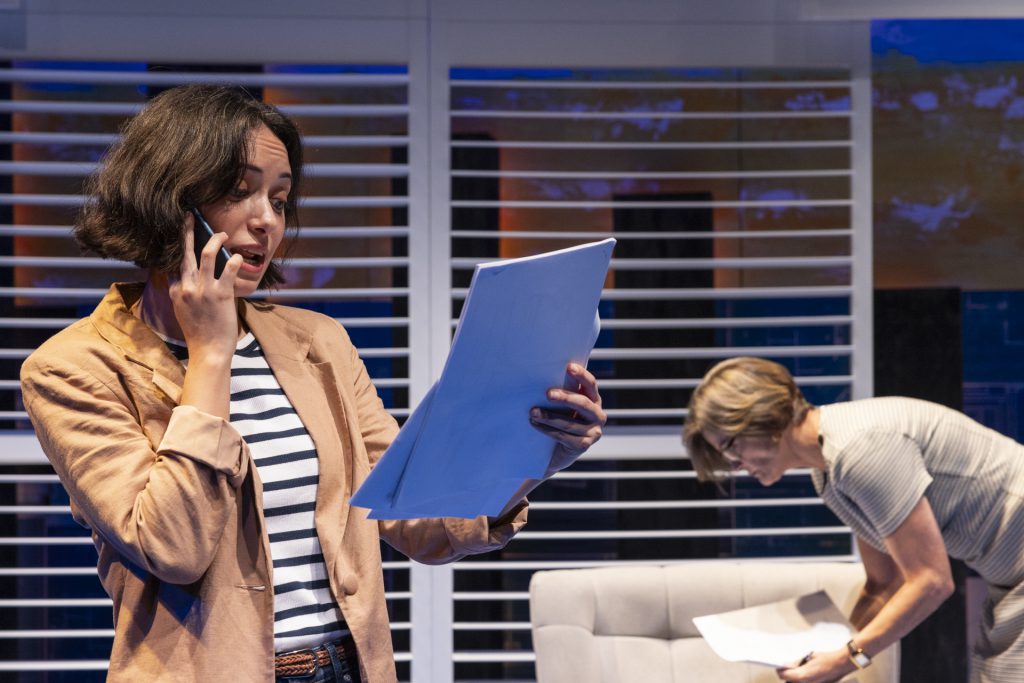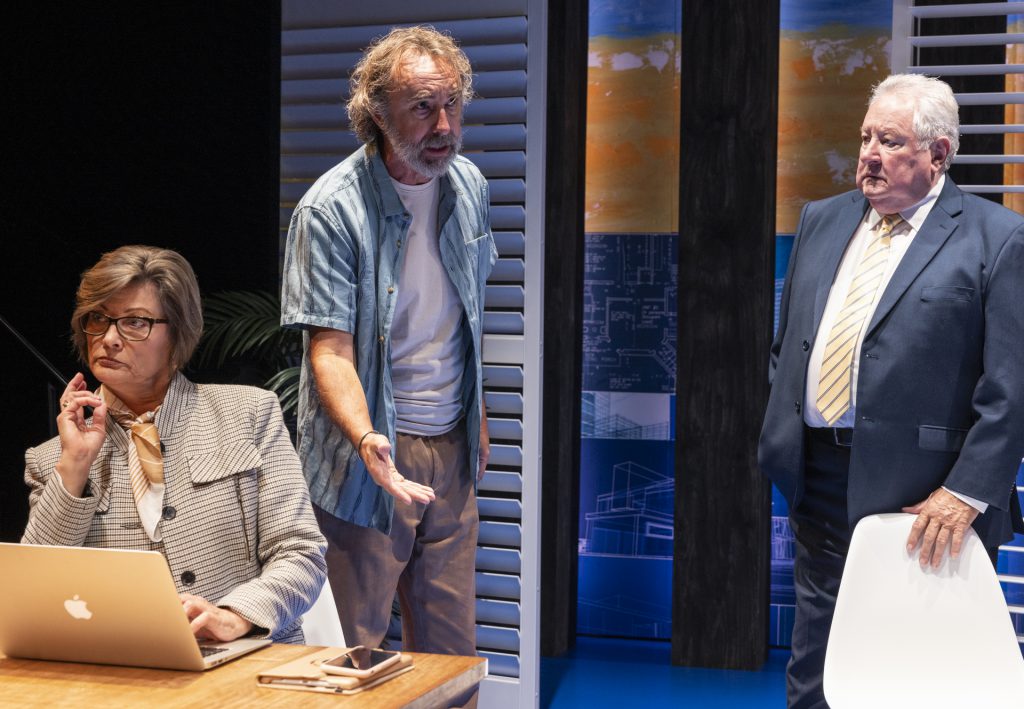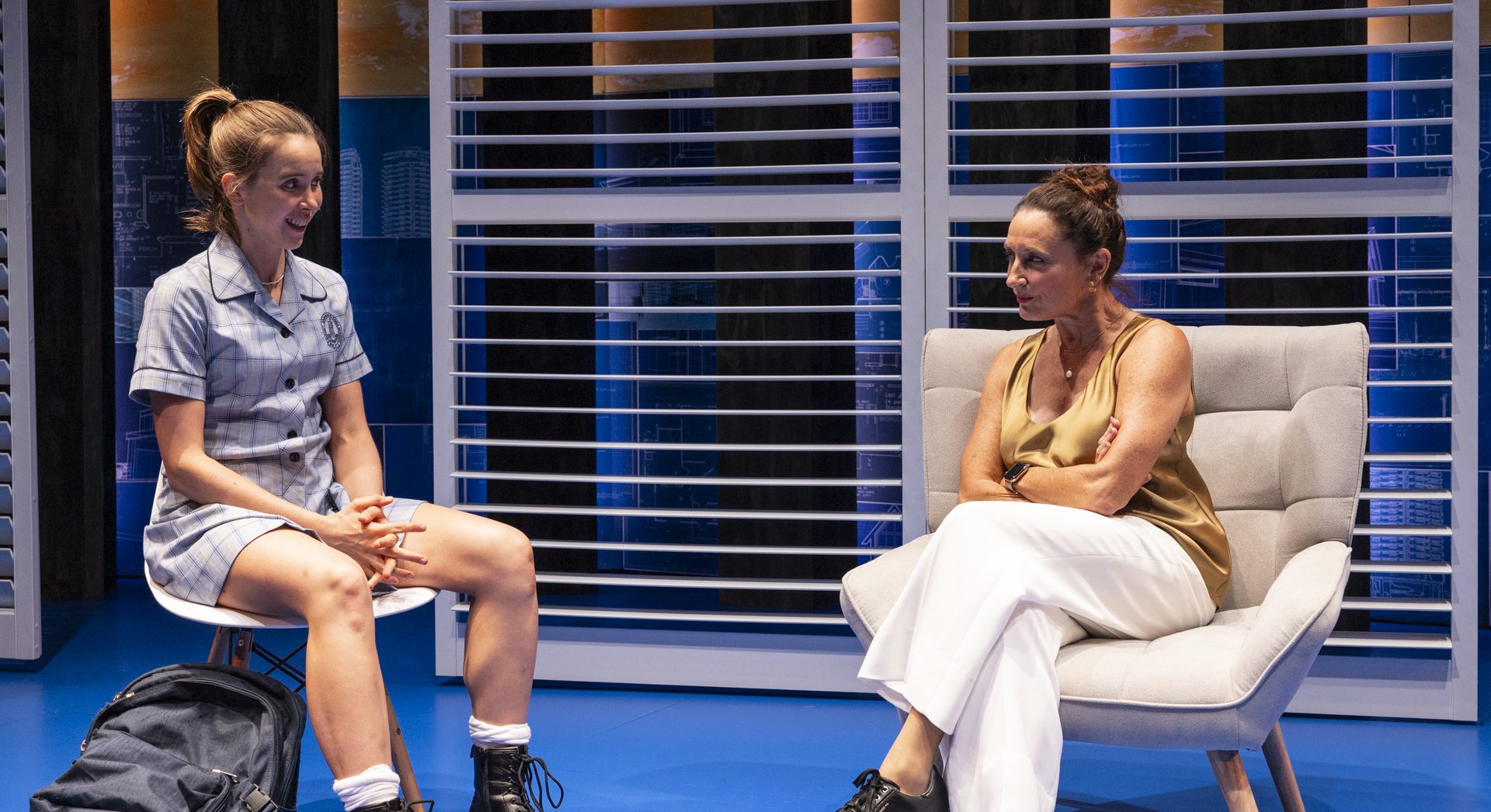A clash of community and plutocracy, imbued with heart and humour.
In a return from retirement, playwright David Williamson teams up with Ensemble Theatre to present The Great Divide. Telling the story of a coastal town’s battle against a dogged property developer, its cracking cast and humorous one-liners make for a good show – albeit one that could make more of its cathartic moments.
At its core, The Great Divide is about conflict. Alex Whittle (Georgie Parker) is an arrogant and wealthy property developer, keen to turn the city of Wallis Heads in to the next Byron Bay. She’s supported in her endeavours by the local council, most notably mayor Alan Bridger (John Wood). Penny Poulter (Emma Diaz) is a Woolies shelf stacker, intelligent and driven to keep Wallis Heads local. She has far less support – least of all from her teenage daughter Rachel (Caitlyn Burley), who is at ends with Penny over her prospects as a pro surfer. Whittle and Poulter’s war of words turns into a full-blown competition for mayor, and for the future of the town.

The performances of the cast are very strong. Parker brings a Trumpian level of narcissism and deceit to an already slimy character. There is a venom to her acting that is unlikeable but watchable and eerily recognisable. It makes the role a profoundly dislikable one, which is the greatest compliment Parker can receive. Diaz plays Poulter well, getting to the depths of a character who is outmatched politically and financially, fighting with her daughter, and struggling with her own life choices. Her challenges seem truly insurmountable.
The supporting performers also deserve credit. Most notable is Kate Raison as Whittle’s PA Grace Delahunty, whose blink-and-you’ll-miss-them reactions are comedy shows in and of themselves, James Lugton as Brian, the local newspaper owner intent on staying politically independent, and Wood as Bridger, a toned-down (but just as immoral) version of Whittle. Another fine performance from him.

Williamson’s script is typically Williamson. It is full of great lines, poking fun at everything from phone sex to the air-headedness of those in the property game. It is also part of the reason the supporting roles shine, as their arcs rival those of the main characters. However, it is quite lopsided – much of the show’s run time is spent developing the characters, meaning the end is jam-packed with rushed plot elements. A better balance between character development and story progression would give more of the script’s emotional moments, of which there are many, a stronger impact.
This lopsidedness is reflected in the direction. Director Mark Kilmurry enforces a fast pace that keeps the performers active and audience engaged. Though this works for the script’s comedic elements, it does cost the play its drama. This is more so the case for the post-interval action, where sets, circumstances, and locations change very fast – too fast for the audience to keep up at times.
Nevertheless, The Great Divide is highly entertaining. Despite its pacing issues, the strong ensemble performance brings yet another Williamson script to life.
